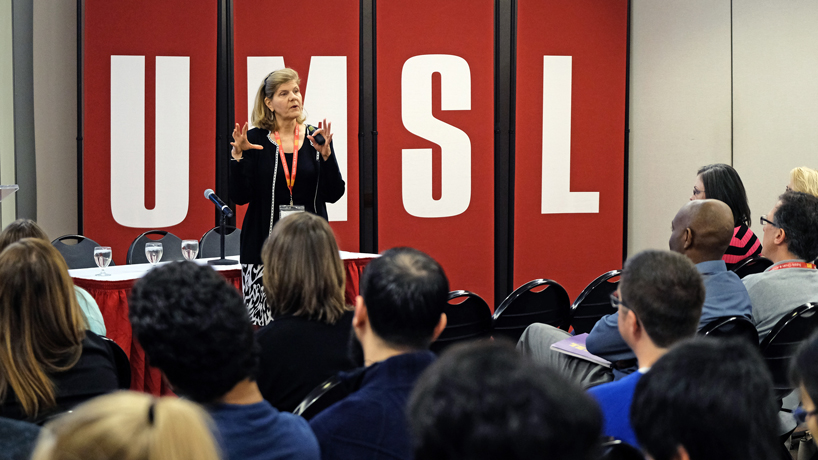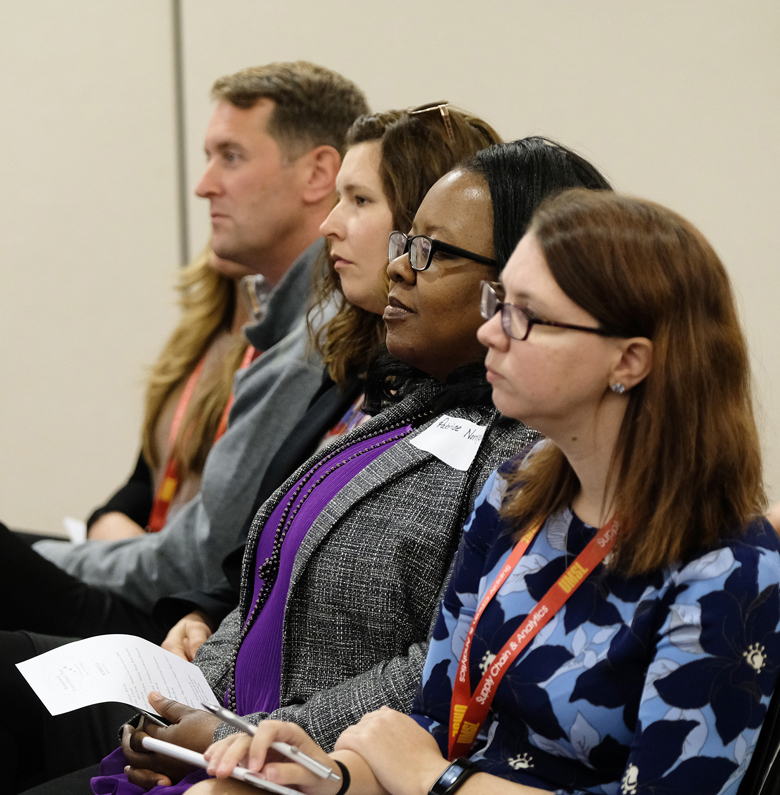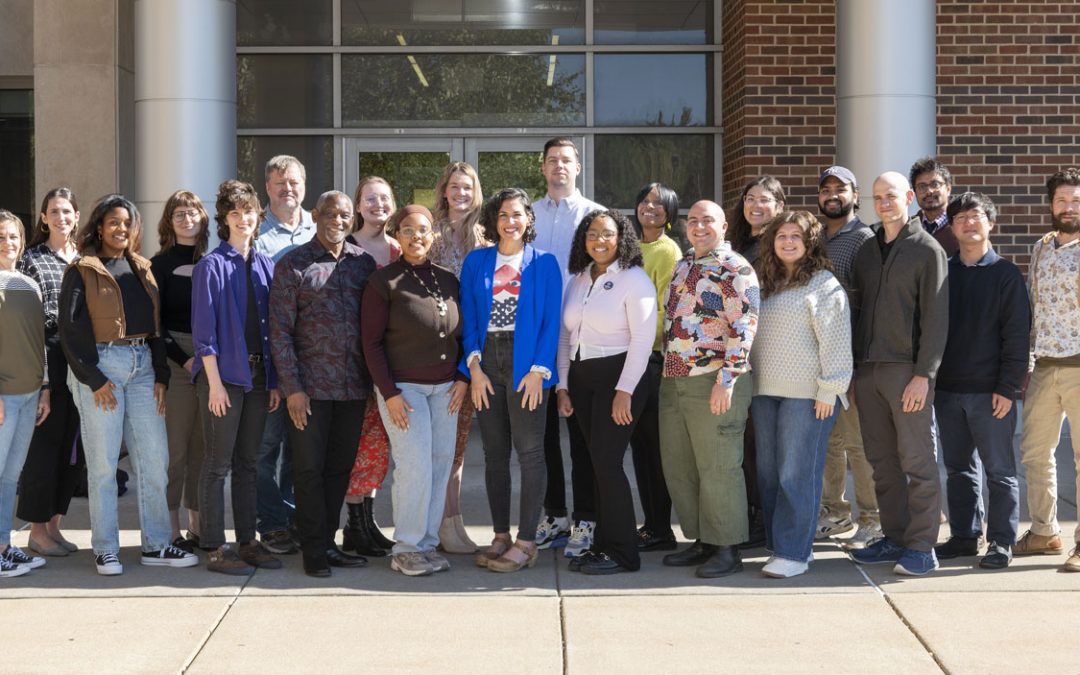
Mary Long, keynote speaker for the “Symposium on Women in Supply Chain,” discusses her career with UMSL students and regional supply chain leaders. (Photos by August Jennewein)
After learning about the University of Missouri–St. Louis Women’s Giving Circle, Andrea Cadenbach, assistant professor of supply chain and analytics, knew she wanted to similarly support women in her field.
Since supply chain career numbers historically favor men, Cadenbach sought out ways to provide a dialogue about the gender gap and increase the talent pipeline. She decided to address these issues through the “Symposium on Women in Supply Chain” on campus last week.
“I want people to know that supply chain management is a very supportive field,” Cadenbach said. “Even though traditionally women may not have entered the field in as high of numbers, everyone I have spoken to is incredibly supportive of the symposium and of women in general.”
Students and regional supply chain leaders met Thursday in the Millennium Student Center for networking opportunities and to listen to guest speakers Mary Long and Lindsey Clothier.
Long, who has worked in a number of high-level positions within leading supply chain companies, encouraged students to define their purpose and track motivations.
“It’s that burning passion that you have to identify inside yourself that really lights you up,” Long said. “It makes you want to go a step further and makes you want to show up to work every day. If it’s not fun, then you’re not going to be able to sustain it.”
Long, an admittedly analytical person, displayed spreadsheets she developed to categorize her career purpose and trajectory. Charlotte Beckum, a senior business administration major at UMSL, embraced this concept.

UMSL students and regional supply chain leaders gathered Thursday for the “Symposium on Women in Supply Chain.”
“She covered a lot of bases, from the beginning to where she is now, and I thought it was encouraging,” Beckum said.
Much of Clothier’s career has also been in male-dominated sectors of supply chain, including General Motors and Ingram Barge Company. She recalls many times where she was the only woman in the room. She’s grown accustomed and eventually began not to notice.
“For women in supply chain, the one thing you have to understand is you have to be empowered,” Clothier said. “You won’t necessarily get that empowerment from your superiors. You have to empower yourself. It’s also about being assertive and knowing that you belong there. I knew I belonged there, and the more I told people ‘I’m sure I belong here,’ they eventually believed it.”
Cadenbach hoped students absorbed the symposium’s main themes of empowerment and opportunity.
“One of the first barriers is that women don’t think about these careers,” Cadenbach said. “They are not on the radar screen. My first piece of advice about moving out into the working world is to expand your horizon. Talk to a diversity of people, because that is the only way you are going to get a variety of ideas on all of the different opportunities.”
Beckum seeks a career as a logistics analyst and left the symposium with renewed confidence.
“I learned that you have to empower yourself,” Beckum said. “Be confident that you can do the job, and although this is a predominately male field, there are a lot of opportunities for females.”
The speakers were followed by a workshop that explored issues in recruiting and supporting women in the field and by a panel discussion that highlighted supply chain careers across a variety of industries. The symposium concluded with a networking reception.
The UMSL Women’s Giving Circle provided a grant to help fund the symposium, and the Supply Chain and Analytics Department Advisory Board and the UMSL Supply Chain Club also provided event sponsorship.















